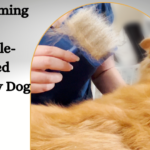
[ad_1]
The African Penguin Spheniscus demersus (Endangered) populace is lowering swiftly, largely as a result of an absence of food. A change in fish supplies far from historical feeding premises on the west coastline along with competitors with the angling sector have actually implied that African Penguins reproducing on the west coastline of South Africa particularly, are battling to discover food. Penguins have actually been incapable to adhere to the altered target circulation due to an absence of risk-free reproducing websites along the southerly Cape coastline. A tiny swarm of penguins developed at the De Hoop Nature Reserve in 2003 however predation by caracal triggered them to desert the swarm a couple of years later on.
When in 2015, BirdLife South Africa (BirdLife companion) started exploring whether it would certainly be feasible to develop brand-new African Penguin swarms, the De Hoop swarm was picked as an optimal prospect website. In collaboration with CapeNature, BirdLife South Africa made as well as built a predator-proof fencing to make certain that, this moment, the penguins would certainly be risk-free. To attract penguins to re-colonise the location normally, life-like penguin decoys as well as penguin calls being relayed by speakers aid develop the impact that penguins are reproducing there.
After waiting 2 years to examine whether all-natural colonisation would certainly occur, the BirdLife South Africa as well as CapeNature came close to the Southern African Foundation for the Conservation of Coastal Birds (SANCCOB) to help with taking the following action, which is to launch penguins at the swarm. The initial launch happened on 11 June.

“This launch, which will with any luck be the initial of several, is the end result of years of job so I’m greatly thrilled to see it ultimately occurring!” claims Christina Hagen, the Pamela Isdell Fellow of Penguin Conservation at BirdLife South Africa, that has actually been running the task given that 2015. “Although there are extra years of effort in advance of us, it is a crucial action to take currently, as yearly we wait, we shed increasingly more penguins.” proceedsHagen
CapeNature Chief Executive Officer, Dr Razeena Omar validates the worth of this collaboration, stating “CapeNature is honored to be component of this ingenious task on among our front runner shielded locations,De Hoop Nature Reserve It is vital that we turn around the decrease of the jeopardized African Penguin, as well as the launch of the fixed up news is a crucial following action in attaining the objective of developing a nest.”

The launched penguins were hand-reared at SANCCOB; most hatched out from deserted eggs saved at the Stony Point penguin swarm as well as bred at the organisation’s Table View center. Dr David Roberts, Clinical Veterinarian at SANCCOB, claims, “We got an abnormally a great deal of African penguin eggs previously this year as well as it was a high job to hand-rear numerous chicks simultaneously. Events such as this one show the difficulty that African penguins remain in when severe climate condition as well as absence of food reason grown-up birds to desert their nests to conserve themselves”.
According to Roberts, “The penguins are launched as news as they have actually not yet picked an area to reproduce as well as when an African penguin begins reproducing at a nest, they return there every year. By launching news, we really hoped that they will certainly go back to De Hoop Nature Reserve to reproduce when they prepare to do so in 3 to 6 years.”
In enhancement to the launched birds being separately noted with Passive Integrated Transponders for post-release surveillance, 2 African penguins will certainly be fitted with GENERAL PRACTITIONER trackers to check their activities promptly after launch.
“We are thankful to our companions, CapeNature as well as SANCCOB, as well as all the benefactors that have actually made this job feasible, specifically Pamela Isdell, the Patron of the African Penguin” claims Mark D. Anderson, Chief Executive Officer of BirdLifeSouth Africa “This is an essential action in the direction of re-establishing this swarm as well as will certainly enhance the preservation standing of our legendary penguin.”

Source www.birdlife.org






